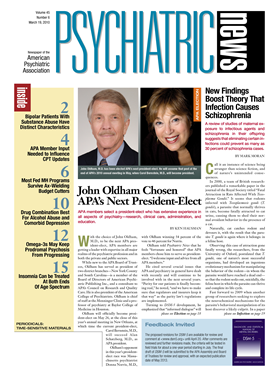Interpersonal psychotherapy might be able to keep overweight teenagers from binging and thus help them stabilize their weight, a preliminary study suggests.
It was headed by Marian Tanofsky-Kraff, Ph.D., an assistant professor of medical and clinical psychology at the Uniformed Services University of the Health Sciences in Bethesda, Md. The findings were published in the October 30, 2009, International Journal of Eating Disorders.
Interpersonal psychotherapy for binge eating is based on the premise that binge eating occurs in response to poor social functioning, and that if people learn how to function better socially, the binging will cease. Previous studies have shown that interpersonal psychotherapy may lead to reduced binging and weight stabilization in adults whose obesity is linked to binging. So Tanofsky-Kraff and her colleagues decided to conduct a pilot study to see whether this kind of therapy might also help overweight youth—especially those who were also bingers—stabilize their weight.
Thirty-eight overweight female adolescents—20 of whom were also bingers—participated in the pilot study. Half were assigned to a year of interpersonal psychotherapy and half to a year of general health education.
The general health education covered topics such as alcohol, drug, and tobacco use; depression and suicide; nutrition; body image; and exercise.
In the interpersonal psychotherapy protocol, subjects were taught skills to improve the way they communicate, such as learning to recognize that their words, tone, and body language all impact social interactions, Tanofsky-Kraff explained to Psychiatric News. Further, subjects were encouraged to try out new ways of communicating both with subjects participating in the study and with individuals with whom they had contact in their everyday lives. The hope was that by improving their relationships through better communication, subjects would feel better and would be less likely to eat in response to negative feelings.
The researchers' expectations were borne out. A year after the program ended, subjects who had received interpersonal psychotherapy experienced significantly greater weight stabilization than did subjects who had received the control protocol.
They are now “conducting a larger, adequately powered trial to determine whether interpersonal psychotherapy is [truly] effective in the prevention of excessive weight gain in adolescent girls with loss-of-control eating patterns,” said Tanofsky-Kraff.
She and her team would also like to see whether interpersonal psychotherapy helps youth who have a genetic predisposition toward binging. In another study they conducted of about 300 children, they found that children with one or two copies of a gene variant linked to obesity weighed significantly more and binged significantly more than did their peers without the variant. These results were published in the December 2009 American Journal of Clinical Nutrition.
How much obesity is due to genes and how much to environment—and therefore potentially mutable with psychotherapy—is unclear at this point. Yet a number of genes have been linked with obesity, and several genes have been linked with binge-eating disorder. Moreover, the heritability of obesity seems to be between 25 percent and 40 percent, research has suggested.
Both studies were funded by the National Institutes of Health and the Uniformed Services University of the Health Sciences.
